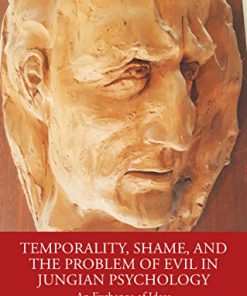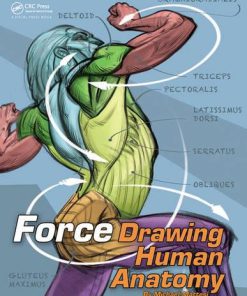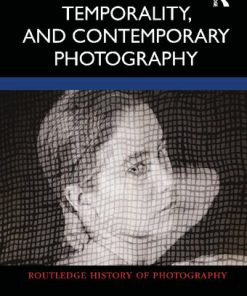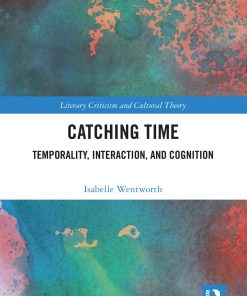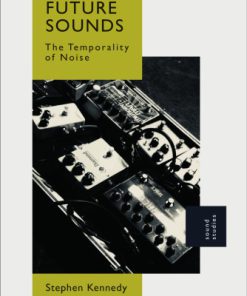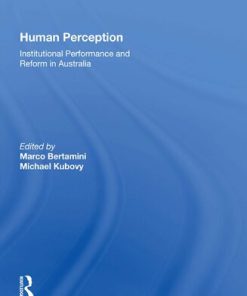On Human Temporality 1st Edition by Michael Eldred 3111136158 9783111136158
$50.00 Original price was: $50.00.$25.00Current price is: $25.00.
On Human Temporality 1st Edition by Michael Eldred – Ebook PDF Instant Download/DeliveryISBN: 3111136158, 9783111136158
Full download On Human Temporality 1st Edition after payment.

Product details:
ISBN-10 : 3111136158
ISBN-13 : 9783111136158
Author: Michael Eldred
Eldred offers a remedy to the consequences of ancient Greek misconceptions of time that are also entrenched in today’s mathematized physics. Here time is spatialized as the one-dimensionally linear ‘arrow of time’ for the sake of predicting and controlling movement. But such spatialized time distorts the phenomenon of time itself. An alternative, hermeneutic-phenomenological path begins with a pre-spatial concept of time that is genuinely three-dimensional. This paves the way for recasting who we are as humans in belonging, first of all, to the free openness of 3D-temporality. This belonging enables temporally 3D-vision of the psyche that empowers us to see movement at all and reconcile its inherent contradictoriness. We are then also able to conceive ourselves no longer merely as internally cogitating, self-conscious subjects, but as engaged existentially in temporally 3D-interplay, mutually estimating and esteeming who we are. This unpredictable interplay is constrained, however, by being played out in the sociating medium of thingified value, the accumulative movement of thingified value having gained the upper hand in dictating our life-movements as well as our interplay with the earth.
On Human Temporality 1st Table of contents:
1 Imaginative essencing in three-dimensional time
1.1 Temporally three-dimensional imagining
1.1.1 As such-and-such
1.1.2 The starting-point of Hegel’s Logik
1.2 The fourth temporal dimension
1.3 Imagining a dynamic situation: movement along an imagined time-line
1.3.1 Derivative linear time
1.4 Linear mental movement in the imagination
1.5 Temporally three-dimensional absorption in a sensuously present situation
1.6 Psychic power of imagination proffered by the three-dimensional temporal openness
1.6.1 Psyche not a thing
1.6.2 Individuation, individualization, dissociation
1.6.3 Psyche and mind according to Aristotle
1.6.4 The obliteration of the ontological difference and the partaking of living beings in the ψυχή
1.7 Presencing and absencing
1.8 Essencing essents
1.8.1 Presencing and absencing as essencing
1.8.2 Οὐσία as fundamental concept of Aristotelean ontology
1.9 Psyche and mind singular, not plural
1.10 Aporias of consciousness
2 Temporality of mind and body
2.1 Single-minded focusing in three-dimensional time
2.1.1 Ambiguity in the sense of mental presencing as focusing
2.1.2 Foreseeing the future
2.1.3 Aristotle on memory
2.1.4 Misconceived spatiality of time for the sake of artificial intelligence
2.2 Mental hip-hopping through interleaved temporal dimensions
2.3 Habituated presence-to-body in harmony with presence-to-mind: practices
2.4 Temporality of space and refutation of interior consciousness
2.4.1 Consciousness and psyche distinct
2.5 Temporally trifocal mental presencing
2.5.1 Traditional treatments of physical movement in linear time
2.5.2 Divine three-dimensional temporal vision according to Boëthius
2.6 Sense perception, physical reality and bodily individuation
2.6.1 Sensuous presence loses its prerogative vis-à-vis temporally three-dimensional mental presencing
2.7 Places in space in time
2.8 Bodying as empsychment and entimement
2.9 Mental absencing distinct from concealment
2.9.1 Sensuously hidden whilst mentally deconcealed
2.10 Mental presencing distinct from deconcealment
2.10.1 Confusing concealment with absence and deconcealment with presence (Heidegger)
2.10.2 Deconcealing a hermeneutic cast as historical struggle
2.11 Presence and absence of essents in the world
2.12 Factual correctness vs. hermeneutic truth
3 All movement contradictory
3.1 All physical movement and change driven by contradiction
3.1.1 Contradiction not resolved in ground
3.1.2 Self-movement of living things driven by contradiction
3.1.3 Contradiction not made to vanish by mathematization of linear time
3.2 Movement in the world
3.2.1 Movement of human life driven by contradiction
3.2.2 Contradiction over correct deconcealment as a driver of democratic power play
3.3 Physical productive movement as seen by the mind a contradiction
3.3.1 Motion one of four kinds of movement/change
3.3.2 Not all movement productive
3.4 Zeno’s arrow
3.5 Principle of non-contradiction untenable
3.5.1 Non-contradiction according to Aristotle
3.5.2 Kant on formal non-contradiction
3.6 Non-contradiction in mathematics
3.6.1 Russell’s paradox
3.7 The inherently ambiguous deconcealment of phenomena
3.8 Estimative deconcealing of essents
3.8.1 Cartesian estimation
3.9 Truth and power interplay
4 Antinomies in physics’ conceptions of motion in linear time
4.1 Motion of physical bodies in time according to Aristotle, Newton, Einstein
4.2 Mathematized access to physical motion
4.3 Perplexing ‘earlier’ and ‘later’ in counted time
4.4 Time spatialized as light-distance in relativity theory
4.5 Absoluteness of Newtonian time abandoned in favour of absoluteness of light-motion in Einsteinian relativity
4.6 Motion in relativistic curved space-time
4.7 Perplexities of quantum-mechanical movement
4.8 Mathematico-empiricist modelling in physics
4.9 An historically fateful casting of time in the beginning
5 Kant on the power of imagination
5.1 Kant’s antinomy of pure reason
5.1.1 Time as “inner sense”, space as “outer sense”
5.2 Kant’s antinomy of pure reason (continued)
5.3 Taking leave from Kant: Recasting the ontological difference as temporalogical difference
5.4 Kantian power of imagination deconcealed as originary three-dimensional temporality by Heidegger’s critique
5.5 Kant’s subjective objectivity further considered
5.6 Liberating the power of imagination from subjugation
5.6.1 Phenomenon of the dream
6 Temporalogical recasting in historical time
6.1 Ideas as hermeneutic and the transformation of ontology into temporalogy
6.1.1 Categories
6.1.2 Factual reinterpretation
6.2 Hermeneutic recasting in historical time
6.3 Dialectic of concepts constituting an interconnected hermeneutic cast: speculative thinking
6.3.1 Commentaries on Hegel’s Logik
6.4 Dialectical contradiction
6.5 The historical task of temporahermeneutic recasting
7 Prolegomenary excursus on Adam Smith’s Theory of Moral Sentiments
7.1 Propriety, sympathy, approbation and disapprobation
7.2 The role of imagination and three-dimensional temporality
7.3 Self-reflection, self-approbation, self-esteem
8 Recasting humanness through a temporalogy of whoness
8.1 Factual and temporalogical truth of whoness
8.2 The truth of human essencing
8.2.1 Existentials of whoness
8.3 Who is the human? What-answers
8.3.1 Survival of the human species through sustainability?
8.4 Temporalogical casting of whoness
8.4.1 Intermeshing of self-movements through estimative interplay
8.4.2 Contradictoriness of selfhood
8.4.3 Who or what: interplay or interaction among powers?
8.4.4 Taking care of living: conformity and aloofness (Heidegger)
9 Sociation through the medium of thingified value
9.1 The gainful game played atop the endlessly accumulative movement of thingified value
9.1.1 Contradictoriness and incalculability of elementary exchange-interplay as kernel of the gainful game
9.1.2 Temporalogy of the gainful game
9.2 Social power and fairness of interplay
9.3 Fairness as criterion of justice
9.4 Right, law, legitimate state power
9.5 Freedom
9.6 Phallic whoness
9.7 Estimating and esteeming the Earth
10 Bibliography
People also search for On Human Temporality 1st:
on the temporality of emotions
temporally human
human temporaments
on temporal authority
humans are temporal beings
Tags: On Human, Temporality, Michael Eldred, Greek misconceptions
You may also like…
Psychology - Psychotherapy
Science (General)
Arts - Graphic Arts
Force Drawing human anatomy 1st Edition by Michael Mattesi ISBN 0415733979 978-0415733977
Earth Sciences - Geography
Human geography 10th Edition by Michael Mercier, William Norton ISBN 0199032939 978-0199032938
Politics & Philosophy - Anthropology
The Selfie Temporality and Contemporary Photography 1st Edition Claire Raymond
Relationships & Lifestyle - Psychological Self-Help
Politics & Philosophy - Social Sciences




